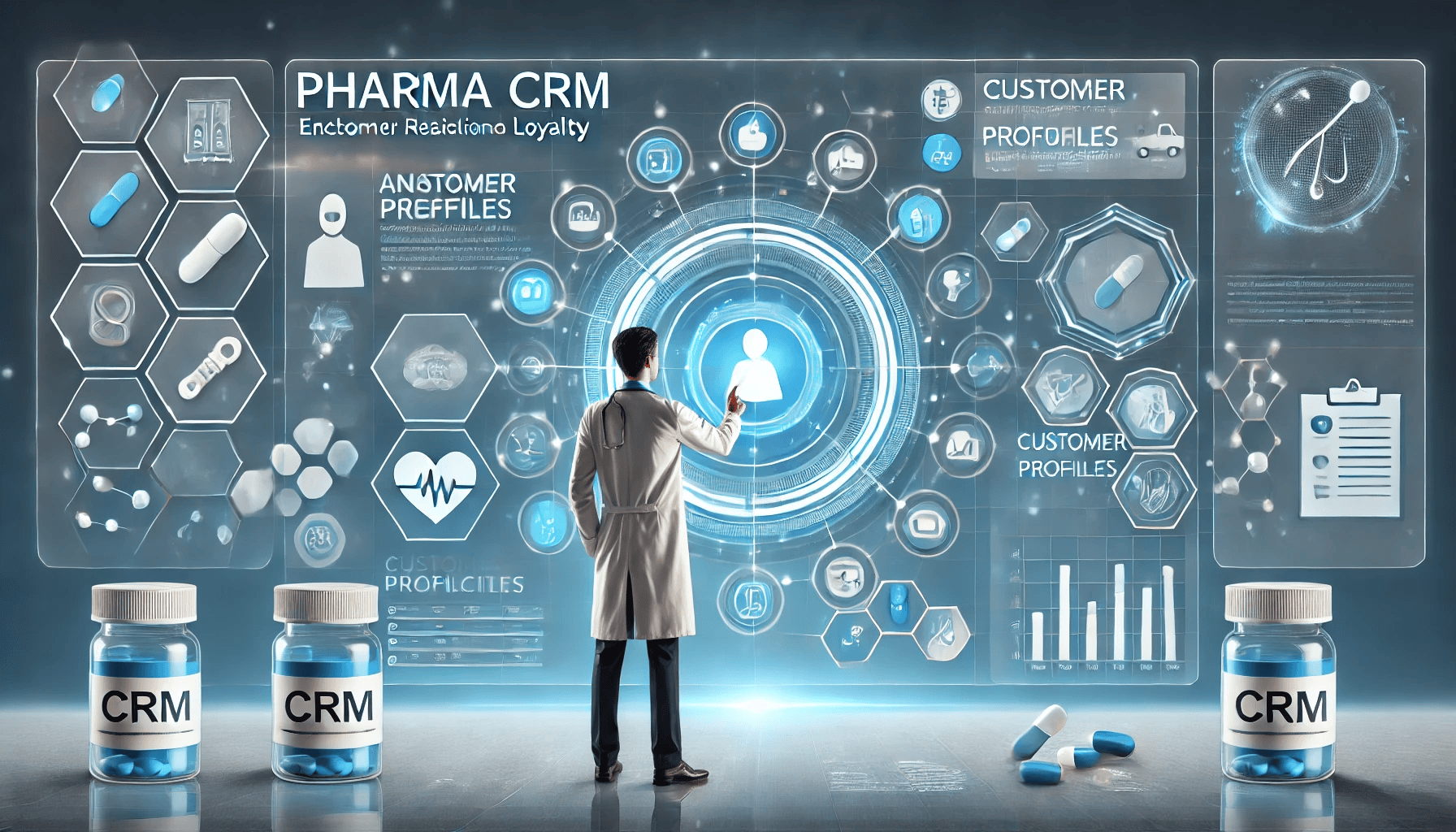In the competitive pharmaceutical industry, sales management plays a pivotal role in driving growth and maintaining market share. A well-implemented Customer Relationship Management (CRM) system can significantly enhance the efficiency of sales teams, streamline processes, and ultimately boost revenue. Here's how CRM impacts pharmaceutical sales management:
1. Centralized Customer Data for Improved Insights
CRMs act as a single repository for all customer-related information, including:
- Physician preferences: Insights into prescribing habits, specialties, and patient demographics.
- Healthcare provider (HCP) interactions: Comprehensive history of meetings, follow-ups, and feedback.
- Sales trends: Real-time data on drug performance in various regions.
This centralization enables pharma sales reps to tailor their strategies based on specific customer needs, leading to more effective engagements.
2. Enhanced Sales Planning and Territory Management
CRM systems help in:
- Segmentation: Grouping customers by geography, specialty, or value to prioritize high-potential leads.
- Route optimization: Planning visits efficiently to maximize coverage and reduce travel costs.
- Goal tracking: Setting and monitoring sales targets at individual, team, or organizational levels.
Efficient territory management ensures that no potential customers are overlooked while minimizing operational costs.
3. Streamlined Communication and Collaboration
CRMs facilitate seamless communication within sales teams and between departments. For example:
- Shared updates: Real-time data sharing ensures everyone is aligned with current priorities.
- Automated notifications: Alerts for follow-ups, sample deliveries, or compliance updates reduce the risk of missed opportunities.
- Integration with marketing efforts: Aligning promotional campaigns with sales strategies enhances customer engagement.
These features eliminate silos and improve the coordination of efforts.
4. Compliance and Documentation Management
Pharma sales are heavily regulated, requiring detailed documentation of interactions and transactions. CRM systems ensure:
- Regulatory compliance: Automated logging of calls and interactions helps meet legal requirements such as Sunshine Act reporting.
- Audit readiness: Easy retrieval of data for inspections and reviews.
- Ethical practices: Transparency in engagements with HCPs ensures adherence to industry standards.
This reduces risks associated with non-compliance and builds trust with stakeholders.
5. Real-Time Analytics for Strategic Decision-Making
Modern CRMs offer advanced analytics, including:
- Performance metrics: Monitoring individual and team productivity.
- Market trends: Identifying shifts in demand or competition.
- Predictive insights: Leveraging AI to forecast sales and optimize inventory levels.
These insights empower managers to make data-driven decisions, resulting in more agile and proactive strategies.
6. Improved Customer Experience
At the heart of CRM is its ability to foster meaningful relationships by:
- Personalizing interactions: Tailoring communication to address specific needs and preferences.
- Timely follow-ups: Ensuring that HCPs and other stakeholders receive relevant information promptly.
- Feedback loops: Capturing and acting on customer feedback to enhance satisfaction.
Satisfied customers are more likely to remain loyal and recommend products, driving long-term growth.
7. Revenue Growth and ROI
Ultimately, the efficiency gains from CRM translate into higher revenue by:
- Increasing sales effectiveness: Reps spend more time engaging with high-potential leads and less on administrative tasks.
- Boosting conversion rates: Targeted and informed strategies lead to more successful engagements.
- Reducing operational costs: Streamlining processes and automating repetitive tasks free up resources for strategic initiatives.
Conclusion
A robust CRM system is no longer optional for pharmaceutical sales management—it is a necessity. By enabling data-driven decisions, enhancing efficiency, and ensuring compliance, CRM helps pharmaceutical companies stay competitive in a rapidly evolving market. For sales teams, this means more time to focus on building strong customer relationships and delivering value, ultimately driving revenue and growth.
Visit www.closeupcrm.com to learn more.



